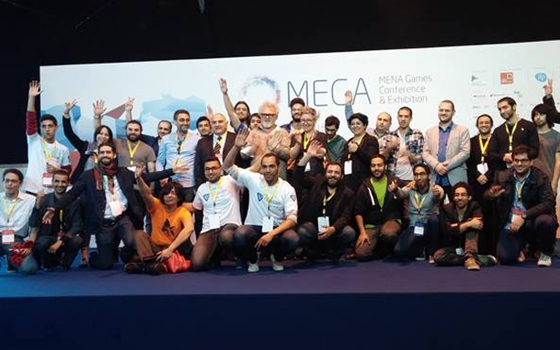The mobile gaming development community in the Arab World is a paradox. Talent, education and desire are present in force. On the other hand, there are still very few local resources to help them secure funding and distribute their games successfully.
"The Arab region needs more local game publishers, but developers have to take things in their own hands too," said Andy Payne, Chairman of the UK-based game producer Mastertronic. Play 3arabi and Tamatem, the only 2 game publishers in the region help connect developers with investors, accelerators and global markets more effectively. But publishers alone are not enough to drive the industry, nor should they. The consensus is that developers need to make an effort and start building or improving their business skills.
Investors, accelerators and even some publishers can help with the business growth and success of mobile games. To get their attention, developers need a winning pitch. Dozens of international gaming agents, publishers and developers shared insights and advice last year at the first edition of MENA Games Conference and Exhibition (MEGA), 26-27 March 2015.
1. Have a working prototype
Powerpoint slideshows with figures and charts no longer cut it. For developers to even stand a chance, they need to have a prototype of their game or a minimum viable product to show off, said Carsten van Husen, CEO of Gameforge.
2. Gather as much experience as possible
The Arab World has very few learning resources available for developers but international game professionals are usually generous with advice, according to Tobias Sjögren from Paradox Interactive (Sweden). Agents like Digital Development Management (DDM) and Interactive Studio Management (ISM) are also useful resources. But more importantly, international events and conferences have a huge networking value and significance for the community, said Joseph Shomali, co-founder and CEO of Play 3arabi.
3. Be creative
This should go without saying. The gaming industry is a creative one par excellence. Gaming experience has evolved in strides since the first arcade games, to include puzzles, online board games, RPGs, adventure games, first-person shooters and Wii. The web also opened the way for MMOs and other online real-time games. Basically, every new game to come out builds on its predecessors' models and some actually "rip off" successful games. But without creativity in the story and gameplay, consumers will get bored.
4. Understand how investors think
There is a tendency to treat investors as allies and forget that they are a target audience themselves. When approaching them, it is important to understand what they are looking for, whether it is filling a gap in their portfolio, supporting a fire-proof and compelling business proposal, penetrating a new and promising market, etc.
5. Attitude is as important as content
A confident attitude definitely reassures investors; developers may have a great idea on paper, but they need to reflect that in the way they speak about it. Being naturally reserved and humble, or speaking in a language one is not comfortable in can damage a pitch and the idea behind it. The solution is ultra-simple: Practice, practice, practice.
6. Make the pitch memorable
According to Daniel Inn, CEO of the Germany-based publishers Gamebrokers, 800 apps are launched in Europe alone every day. This gives a rough idea of the number of developers approaching publishers and investors. To stand out from the crowd, developers have to make their pitch memorable. "There is no magic formula for pitching, but there are tools you can use," said Andrew Walker, co-founder of Game Founders, the first game accelerator in Europe. Some of these tools include using props, elevator pitches, or video – the new Powerpoint, according to Walker.
7. Pitch all the time
Even a great memorable pitch is no guarantee of success, so mobile game developers have to keep trying and pitching. The good thing is that every pitch – especially a bad one – is a huge learning experience. Feedback helps them define their positioning vis-à-vis investors, the market, etc . In turn, this forces them to review their goals and modify (improve) their pitch accordingly.
Alexis Baghdadi
30 March









































































